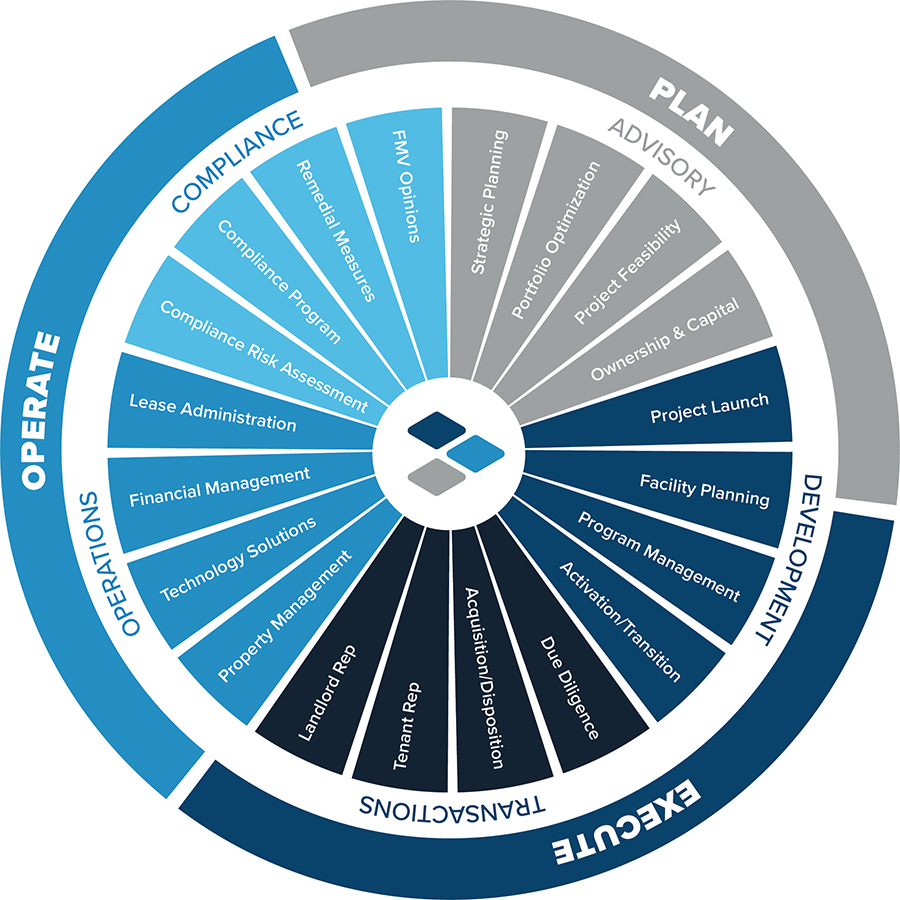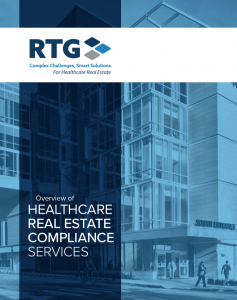
Compliance
Healthcare Real Estate Compliance Services
Healthcare real estate is a unique and complex industry—particularly regarding compliance. The Stark Law, the Anti-Kickback Statute, the False Claims Act, and other healthcare statutes and regulations create a complicated environment for health systems. A decision that is acceptable in another type of real estate transaction can result in serious violations for health systems, exposing them to significant liability and cost.
The healthcare landscape constantly changes and presents increasing competitive pressures and progressive physician alignment models. It is imperative that health systems implement effective real estate compliance programs that shelter them from regulatory infractions that result from inadequately structured, or administered, real estate arrangements with referral sources.
Realty Trust Group (RTG) provides a broad spectrum of healthcare real estate compliance services. From evaluating the structure of a new transaction, reviewing an existing transaction, or drafting and implementing compliance policies and programs, our team offers comprehensive support. We leverage our extensive healthcare experience to improve operational efficiencies, streamline processes, and identify cost-saving opportunities.
Healthcare Compliance Services


Compliance Risk Assessment
- Current State Analysis
- Operational Process Review
- Compliance Policy Review
- Lease Audit / Testing
Compliance Program Development
- Policy & Procedure Development
- Process Improvement
- Staff Training
- Issue Resolution Protocols
Remedial Measures
- Corporate Integrity Agreements
- Non-Prosecution Agreements
- Self-Disclosure Assistance
- Independent Review Organization Engagements
FMV Opinions
- Competitive Market Analysis
- FMV and CR Opinions
- Timeshare Leasing Analysis
- Litigation Support & Expert Witness
What Our Clients Say
Healthcare planning and real estate go hand in hand these days, it’s all integrated, and RTG is my “right hand person” when working on all real estate matters.
We know and have talked to some healthcare real estate firms others that are good, but they may not have the breadth that RTG has. It would be a learning curve for a new firm to get to know us. RTG knows Northside and the way we want things delivered.






